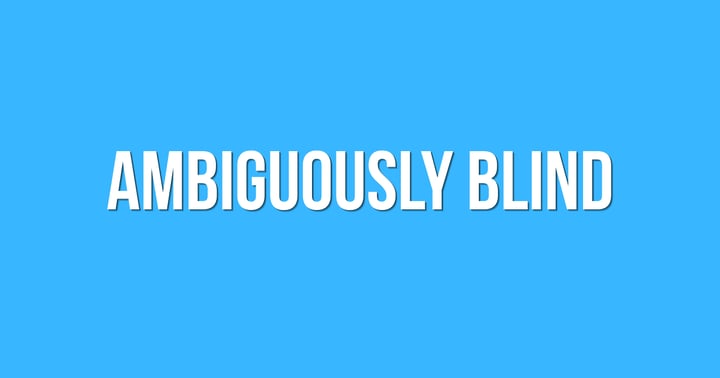Pride Makes Excuses. Humility Makes Adjustments.

.:: By John B Grimes
It’s funny how simple phrases can carry the weight of entire life lessons. “Pride makes excuses. Humility makes adjustments.” When I first heard that, just a couple of weeks ago, it stopped me cold. Not because it was some groundbreaking revelation, but because it was something I’d lived—again and again—especially after meningitis changed everything in an instant.
When I woke up from the coma, I wasn’t just relearning how to talk, walk, or feed myself. I was coming to terms with the reality that my life—and my body—had been radically altered. I had lost my vision, my independence, and, for a time, my sense of direction. I didn’t know it then, but I had a choice to make: I could cling to pride, or I could lean into humility.
Pride told me I could go back to the way things were. That this was temporary. That I didn’t need help, didn’t need to adjust. Pride whispered, “You can figure this out on your own. Don’t let people see you struggle. Don’t ask for help.”
And for quite a while, I listened.
I didn’t want special help or to use the adaptive technology. I was reluctant to speak openly about my vision loss. I resisted mobility training. And when it came to medical needs like learning to use a catheter independently, I fought it hard. I made excuses: “I’ll get better soon.” “I can hold it.” “I don’t need that.”
But the truth was, I was scared. I was grieving. And pride was disguising itself as self-preservation.
It wasn’t until I hit a wall—missing appointments, missing social interactions, struggling in class—that I realized something had to give. Pride wasn’t getting me where I wanted to go. It was just slowing me down.
Enter humility.
Humility isn’t weakness. It’s strength disguised as surrender. It’s saying, “This is hard, and I can’t do it alone.” It’s trading ego for honesty, and excuses for action. And it was humility that helped me ask for help—from professors, friends, mobility instructors, counselors, and my family. It was humility that helped me accept accommodations and learn new tools. And it was humility that taught me to advocate for myself without shame.
Humility didn’t just make life easier—it made it richer.
I built deeper relationships with people who saw the real me, not the version I tried to protect. I discovered assistive technology that allowed me to read, write, and communicate in ways that felt empowering, not limiting. I even started opening up about my story publicly—something I never would’ve imagined in those early days of post-meningitis survival.
One moment that still makes me cringe—and laugh a little—was my 21st birthday. I went to Austin with my friend Chris to have my first legal drink, which, for the record, was a Flaming Dr. Pepper. Pride told me not to bring a catheter. It would be embarrassing, inconvenient, and a total buzzkill. So I left it behind, figuring I’d just “hold it.” Several hours and a few drinks later, pride was nowhere to be found—but my problem definitely was. I ended up having an accident because I waited too long. It was messy, mortifying, and about as inconvenient as it gets. Pride had talked me into a foolish decision and then ghosted me when it mattered most.
That’s the power of humility. It makes space for growth, for adaptation, and for lasting change.
Pride isolates. Humility connects. Pride keeps us stuck. Humility moves us forward.
Today, I still wrestle with pride. It’s human. But I’ve learned that humility isn’t a step back—it’s a step in the right direction. It’s the key that unlocks progress, especially when the road ahead feels uncertain.
So if you’re at a crossroads—if life has thrown you a curveball, or you’re staring down something that feels too big—ask yourself: Are you making excuses, or are you making adjustments?
Because real growth doesn’t come from pretending you’re fine. It comes from admitting you’re not—and doing something about it.












